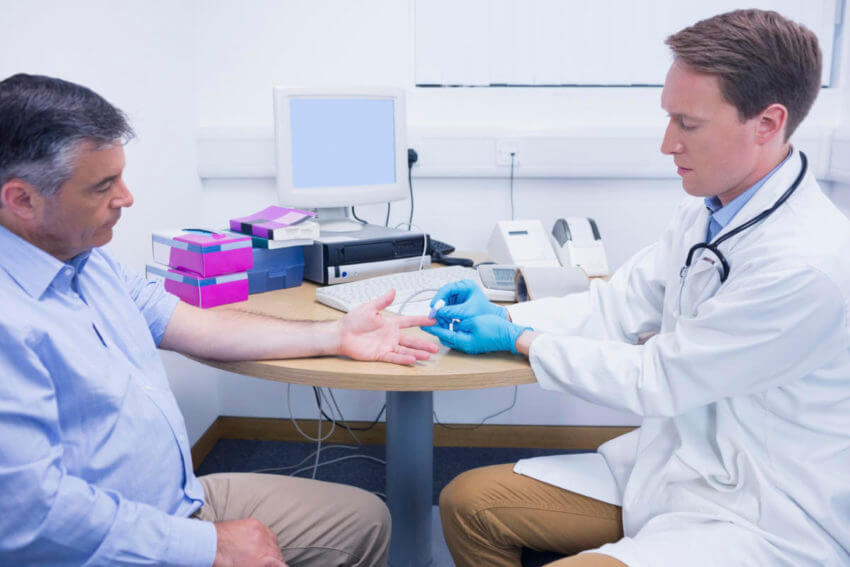Bariatric surgery is a vital weight-loss treatment for people who have a body mass index consistently over 40, or have a BMI over 35 joined by type 2 diabetes or other risk factors. Gastric bypass and sleeve gastrectomy are the two most commonly performed bariatric procedures to treat these patients.
“These two surgeries are the most effective treatment of obesity and related conditions such as diabetes. Gastric bypass surgery and to a lesser degree sleeve gastrectomy have an immediate and robust effect on glucose control in patients with type 2 diabetes,” said Marzieh Salehi, M.D., M.S., a diabetes physician-researcher who recently joined UT Health San Antonio. “But too much of a good thing, perhaps, is not so good for a small group of individuals who develop low glucose levels several years after bariatric surgery, particularly gastric bypass surgery.”

Number of affected individuals is relatively small
Estimates of prevalence vary, but a 2018 article coauthored by Dr. Salehi said it is likely that about 10 percent of bariatric surgery patients have clinically recognized hypoglycemia, and that a small group of patients, under 1 percent, have episodes severe enough to require hospitalization.
“These patients often look for answers for many years through multiple medical providers and various tests without gaining an understanding of their condition,” Dr. Salehi said. “There have been cases where the symptoms of hypoglycemia were labeled as mental problems.”
Late-onset hypoglycemia may limit life activities
Hypoglycemia that occurs within six to 12 months after bariatric surgery is generally not related to the surgery, she said. People may have hypoglycemia for other reasons, such as insulin-producing tumors or nutritional deficiency.
“The hypoglycemia related to gastric bypass typically manifests beyond the first year after surgery, and symptoms generally occur one to three hours after eating,” Dr. Salehi said.
Symptoms range widely in severity, from heart pounding and sweating to confusion, difficulty in speaking and thinking, and, rarely, loss of consciousness and seizures. Some people no longer can drive and have problems with keeping their employment.
Patient care provided on case-by-case basis
Dr. Salehi has published several expert-opinion papers, the most recent in collaboration with colleagues at Harvard, the Mayo Clinic and Stanford, for treating post-bariatric hypoglycemia. Recommendations in general include dietary modification and medications that interfere with carbohydrate absorption or suppress insulin secretion. Thorough evaluation of each patient is required for proper diagnosis and an individualized treatment option.
“With Dr. Salehi’s arrival, this is a new expertise we are building in our comprehensive diabetes treatment center at UT Health San Antonio,” said Ralph DeFronzo, M.D., professor and chief of diabetes in the university’s Joe R. and Teresa Lozano Long School of Medicine.
Prompt attention needed
“So many of these people are not properly diagnosed or treated,” Dr. Salehi said. “By the time they get to me, we have to make a lot of adjustments. It is significant that the medical community has better understanding of this condition and is able to refer them properly. It is also crucial for these patients to get access to the experts.”
Dr. Salehi’s expertise in the care of these patients is based on several years of research studying the effect of weight-loss surgeries on diabetes remission and hypoglycemia. Funding from the National Institutes of Health (NIH)/National Institute of Diabetes and Digestive and Kidney Diseases (NIDDK) supported this work, along with grants from the American Heart Association and the American Society for Bariatric and Metabolic Surgery.
Surgery curbs diabetes in one-third of patients
It has been recognized that one in three people taking diabetes medicine prior to gastric bypass surgery comes out of the surgery no longer needing medication before any weight loss happens, Dr. Salehi said.
“My research showed that rerouting the gut can change the cross-talk between the gut and other organs involved in glucose metabolism independent of weight loss,” she said.
Dr. Salehi invites individuals and families who seek a diagnosis — as well as physicians who wish to refer patients — to contact her at (210) 450-8696 or salehi@uthscsa.edu.
Experienced physicians are available for patients considering surgical weight loss.
UT Health San Antonio physicians have performed bariatric surgery since the 1980s. The university’s board-certified, fellowship-trained bariatric surgeons help patients reach their lifelong goals through minimally invasive laparoscopic weight-loss surgery procedures that cause less scarring and faster recovery. The faculty also offer patients guidance on proper nutrition and exercise to help them achieve lifelong health and wellness to live a happier life.
Considering surgical weight loss? Learn more here. To request an appointment, or to make a referral to one of the physicians, please call 210-438-8446.
Stay connected with UT Health San Antonio on Facebook, Twitter, LinkedIn, Instagram and YouTube.
The University of Texas Health Science Center at San Antonio, now called UT Health San Antonio®, is one of the country’s leading health sciences universities. With missions of teaching, research, healing and community engagement, its schools of medicine, nursing, dentistry, health professions and graduate biomedical sciences have produced 36,500 alumni who are leading change, advancing their fields and renewing hope for patients and their families throughout South Texas and the world. To learn about the many ways “We make lives better®,” visit www.uthscsa.edu.


